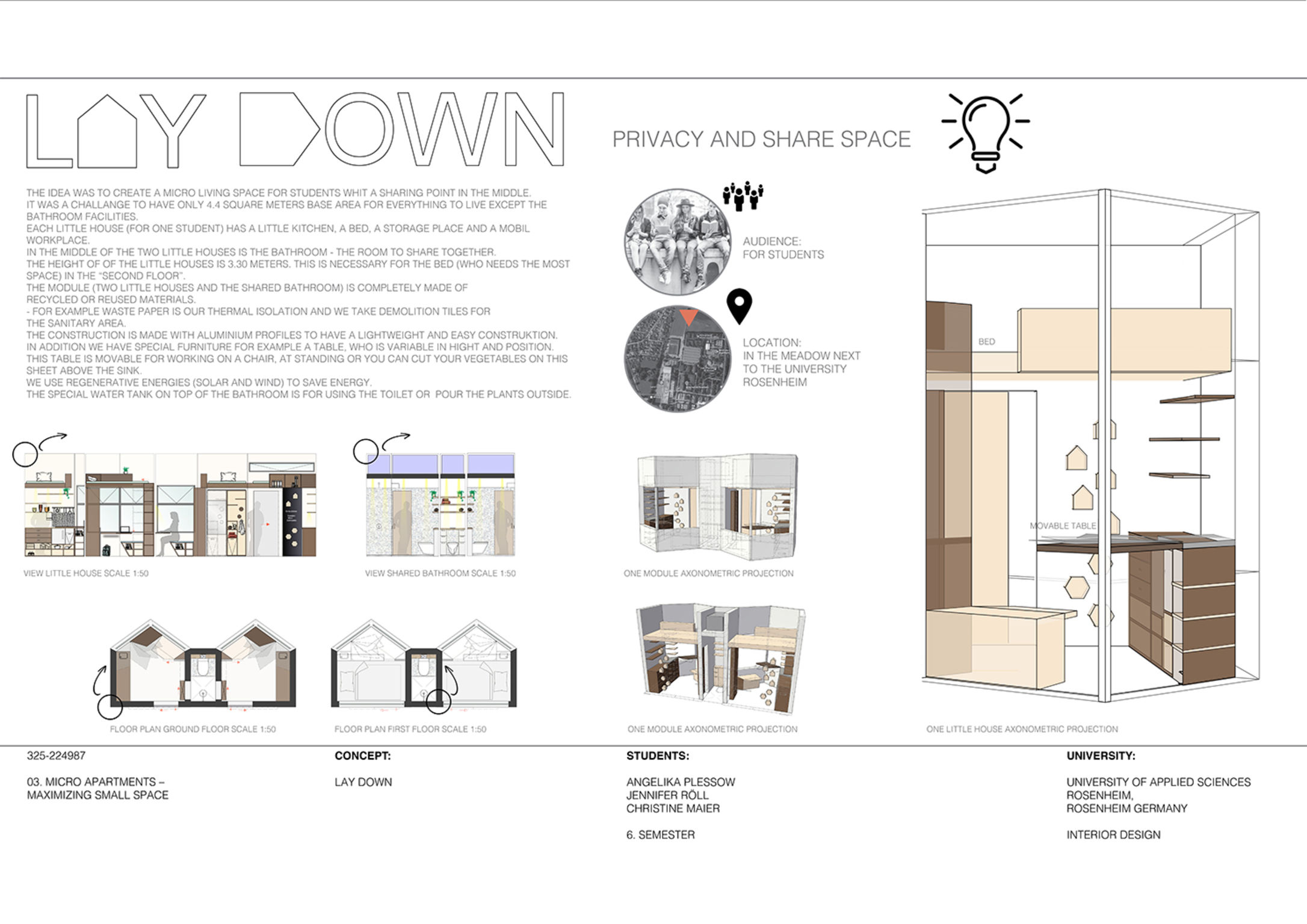









Lay Down
Tiny house
The idea was to create a micro living space for students with a sharing point in the middle. It was a challenge to have only 4.4 m² of basic area for everything needed for living except the bathroom facilities. Each little house (for one student) has a little kitchen, a bed, a storage place and a mobile workplace. In the middle of the little houses is the bathroom – the room to share together. The height of the little houses is 3.30 m. This is necessary for the bed, which moves to the 'second floor'. The module is completely made of recycled or reused materials. We tried to create the feeling of 'home' in a new town with only 4.4 m².
This project shows a strong commitment to material recycling, the use of regenerative energy sources and sustainability in general. Plans, sections and axonometric projection reinforce the 'descriptive memory' presented by the designer from an architectural point of view.
WINNER STATEMENTFirst of all, we would like to thank the team behind the iF DESIGN TALENT AWARD. It is an honor for us to receive this award, which is great motivation for our upcoming projects. Furthermore, we would like to thank Hermann Krose, our professor at the University of Applied Sciences Rosenheim, for his continued support.
UNIVERSITY